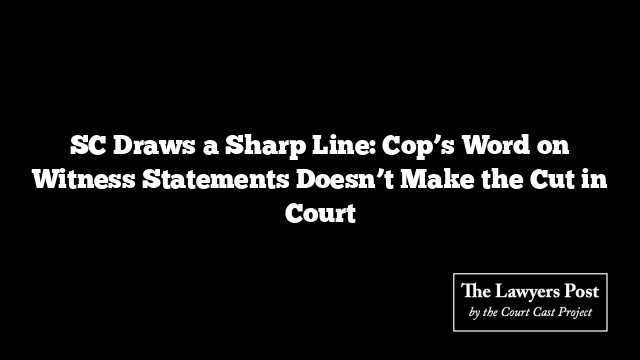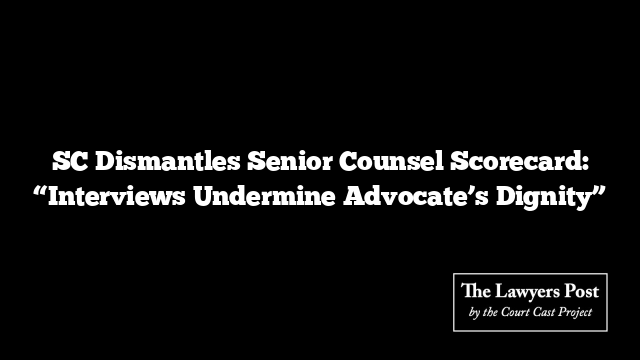In a significant pronouncement, the Supreme Court has drawn a clear boundary between investigative authority and admissible evidence. While police officers can be credible narrators when it comes to recoveries—say, a hidden weapon revealed during an accused’s confession—their testimony hits a legal wall when it hinges solely on what other witnesses told them during an investigation.
The Court made it unambiguous: statements recorded under Section 161 of the Criminal Procedure Code (CrPC), which captures what witnesses say during police questioning, cannot magically become courtroom gospel just because an officer repeats them. No matter how senior the officer or how confident the delivery, secondhand accounts of witness statements aren’t admissible as evidence.
In essence, the Court reinforced a long-standing principle—investigators are not messengers of truth just by virtue of their uniform. The content of Section 161 statements can’t sneak into trials via the back door of police testimony. If a witness said something important, that witness must take the stand. No shortcuts.
The ruling underscores the sanctity of fair trial procedures and throws cold water on attempts to bolster weak cases through indirect police narration. A recovery is one thing. But turning hearsay into proof? That’s a bridge too far.





